We’ve all been there. You wake up one morning, determined that this is the day you’ll finally get your house in order. You’ve read the books, watched the shows, and bought the matching storage containers.
Maybe you even succeed at an initial decluttering, then find yourself drowning in stuff again mere months later. What’s going on?

Why can’t I declutter?
Getting to the root of the issue is the only way to fix it. Here are some of the most common reasons we struggle to declutter.
1. Well, mental illness.
Outside of hoarding disorders, many types of mental difficulties will make it harder to declutter. Depression, anxiety, enhanced feelings of guilt, among a few.
This is probably something to address in therapy or with another professional, if you’re up for it. In the meantime, you might read this: The Clutter-Depression-Anxiety Cycle: How To Stop It.
2. Sentimentality.
This one really gets me. It’s so hard to let go of things that were gifts from dear friends, the belongings of a loved one who has passed on, memories from your childhood…but here’s the difficult truth: The past has passed.
The only time that exists is now.
And are you helping yourself, right now, as you exist today, by holding onto all of that stuff? The answer is likely no.
You’re probably holding yourself back from achieving the life you want to live. Is that what your friends, late loved ones, or your childhood self would want for you?
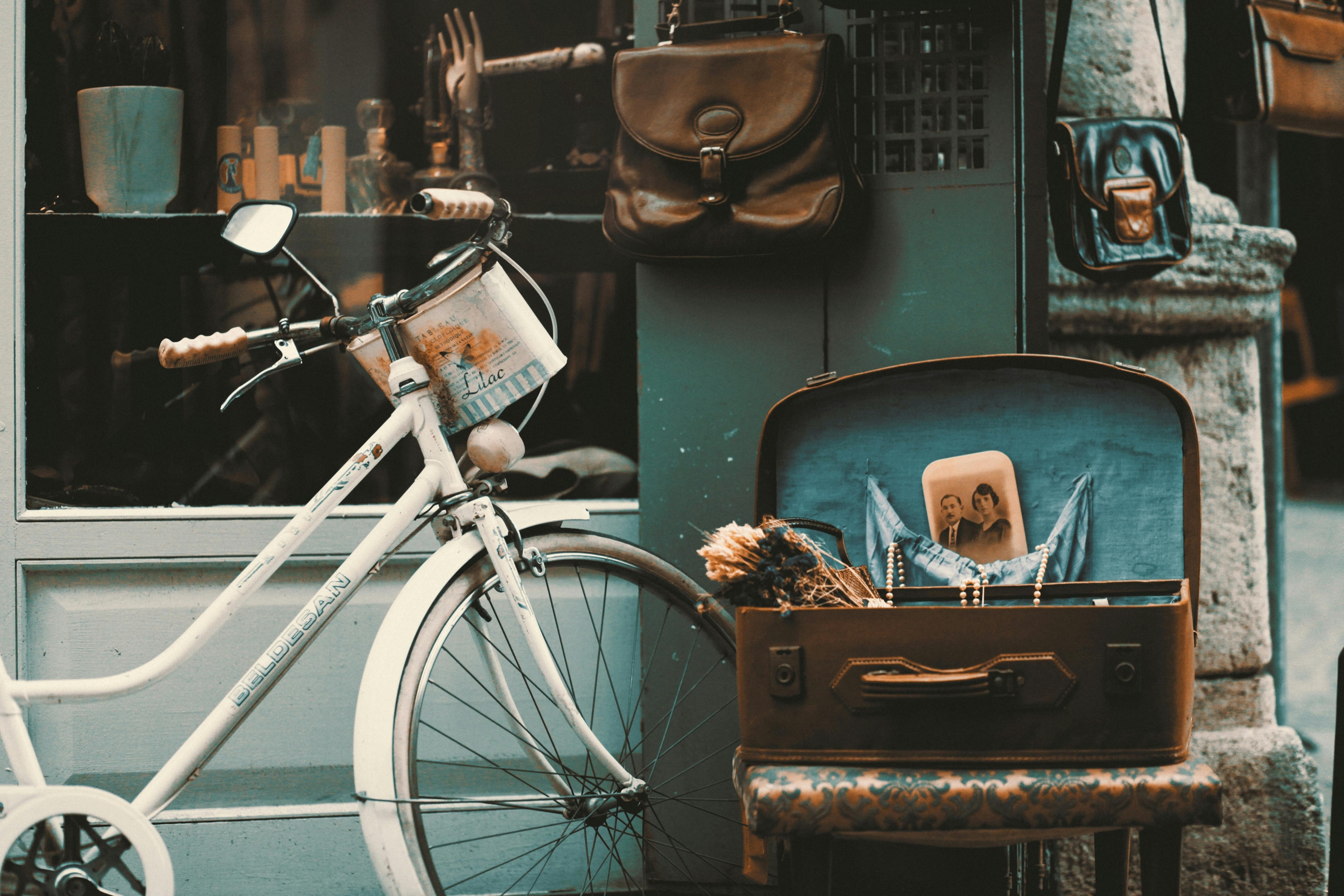
3. “Just in Case” disease.
The random stuff we keep just to MAYBE at SOME POINT in the future avoid buying a $5 object? It’s not worth it.
Past trauma can also create a scarcity mindset that makes it scary to let things go, because maybe in the past, you’ve not been able to guarantee that you can afford necessities. And if that’s not true anymore, it’s time to adjust our behavior accordingly.
Try the 20-20 rule: If you can replace it for under $20 within 20 minutes, ditch it.
I know feeling wasteful sucks. But we can’t hold onto everything for hypothetical future scenarios that will likely never happen. Our space, time, and attention is finite, so spend it where it matters.
3. Overwhelm in the decluttering process.
Most people who fail to declutter try to take on too much at once. They want to do the ENTIRE HOUSE in a day.
That’s just not reasonable. You HAVE to pace yourself. Do less than you think you can do in a day. Stop BEFORE you run out of energy.
Then pick it back up tomorrow.
A steady, systematic approach is how we make real progress toward any goal.
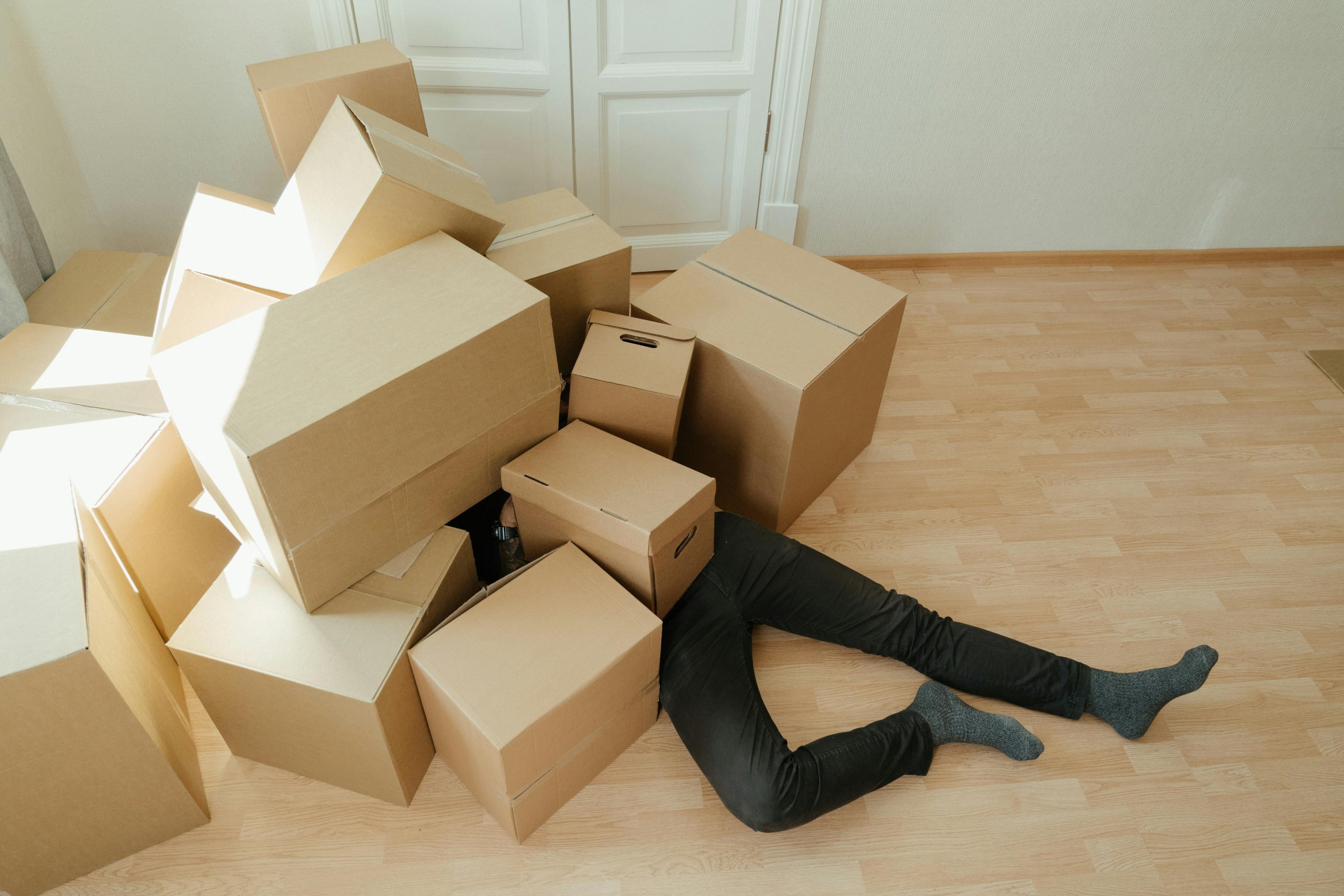
4. Shopping to fill a void.
Sometimes we successfully declutter, then end up right back in the same place we were before, because we never interrupted the shopping cycle.
If you don’t address your habits, decluttering becomes a never-ending loop, and you will never find lasting relief.

These are common reasons people struggle, but they’re not insurmountable. Let us surmount them together–come along, darling.
How to fix it.
So, what can we do to overcome these challenges? Here are some practical, actionable tips for keeping you on track until your house is decluttered.
1. Clear a space before you start decluttering.
In my experience, a decluttering journey often starts (or attempts to start) in the midst of some emotional turmoil. Maybe you’re overstimulated–the kids are yelling, the dog just threw up, you have a mountain of tasks, you barely slept last night, and you skipped lunch.
You know what could help? Decluttering the entire house right this very second.
Or maybe you’ve had a falling out with a close friend or partner, and you feel like you need to change your entire life–might as well start with decluttering RIGHT NOW.
I understand the impulse. In that moment, you want LESS happening, or you want to make a big change, and the pile of junk on the kitchen table seems like a good place to start.
But pause.
Breathe.
You’re not going to help yourself by jumping into this blind with both feet. Prepare yourself, mentally, emotionally, and physically, for this undertaking before you begin.

Clear distractions.
Handle the non-clutter chaos around you, whatever that might mean for your circumstances.
Give yourself a moment of silence for some deep breathing.
Prepare your space.
I think this is so important–prepare your space before starting. If you’re going through a kitchen cabinet, clear the counter tops so you have room to sort.
Make yourself a mug of tea or a cocktail, drop on your favorite record, and have a much chiller time with your decluttering process instead of freaking the freak out.

2. Do a little at a time.
Start decluttering with one drawer, one shelf, or one category of items. Start with less than you think you can manage, and stick with that project until it’s complete.
This might mean working on the same kitchen drawer in 10-minute spurts over the course of a week. That’s okay. Baby steps can still move you forward. They move babies forward all the time!
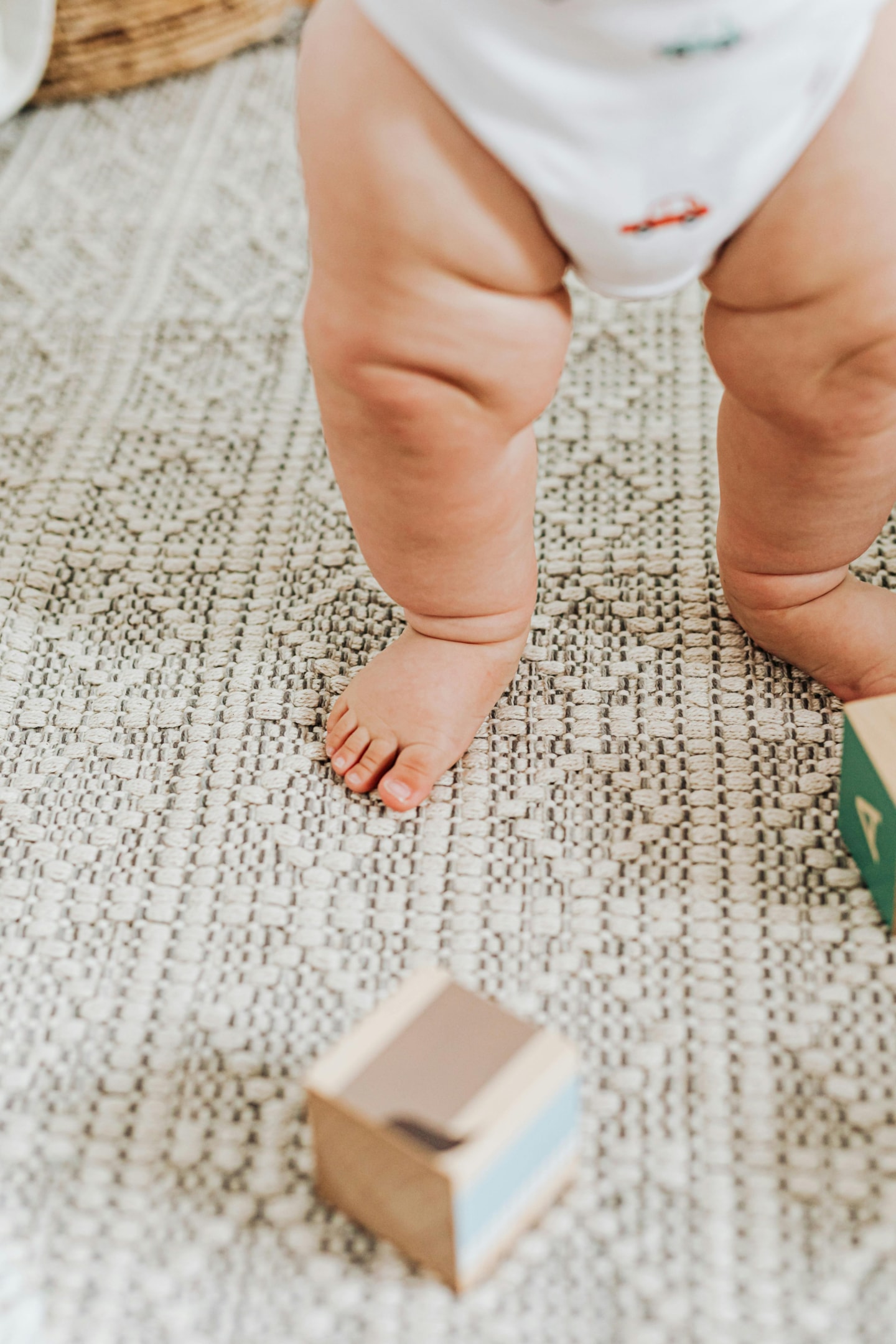
The goal is sustainability. If going slowly means you keep going, then go slowly.
3. Action basket.
Keep an action basket while you declutter.
This just means a container of some sort that you toss things in you need to do something with–to ship, to put away in another room, to return to the store, to fix, to ask your spouse if they know what that weird screw goes to.
Action baskets are also helpful outside of decluttering–throughout the day, we often have to make these micro-decisions about how to deal with items.
Decision fatigue is a very real thing. Sometimes we’re too burnt out to make that little decision, so we toss the item somewhere.
Tossing it in a designated space, like an action basket, means you can come back to it and deal with all of those items at once to reduce decision fatigue and save time.
You’re still giving yourself the same relief of not needing to make a decision in the moment, but you’re doing it intentionally and systematically so it won’t cause you problems later.
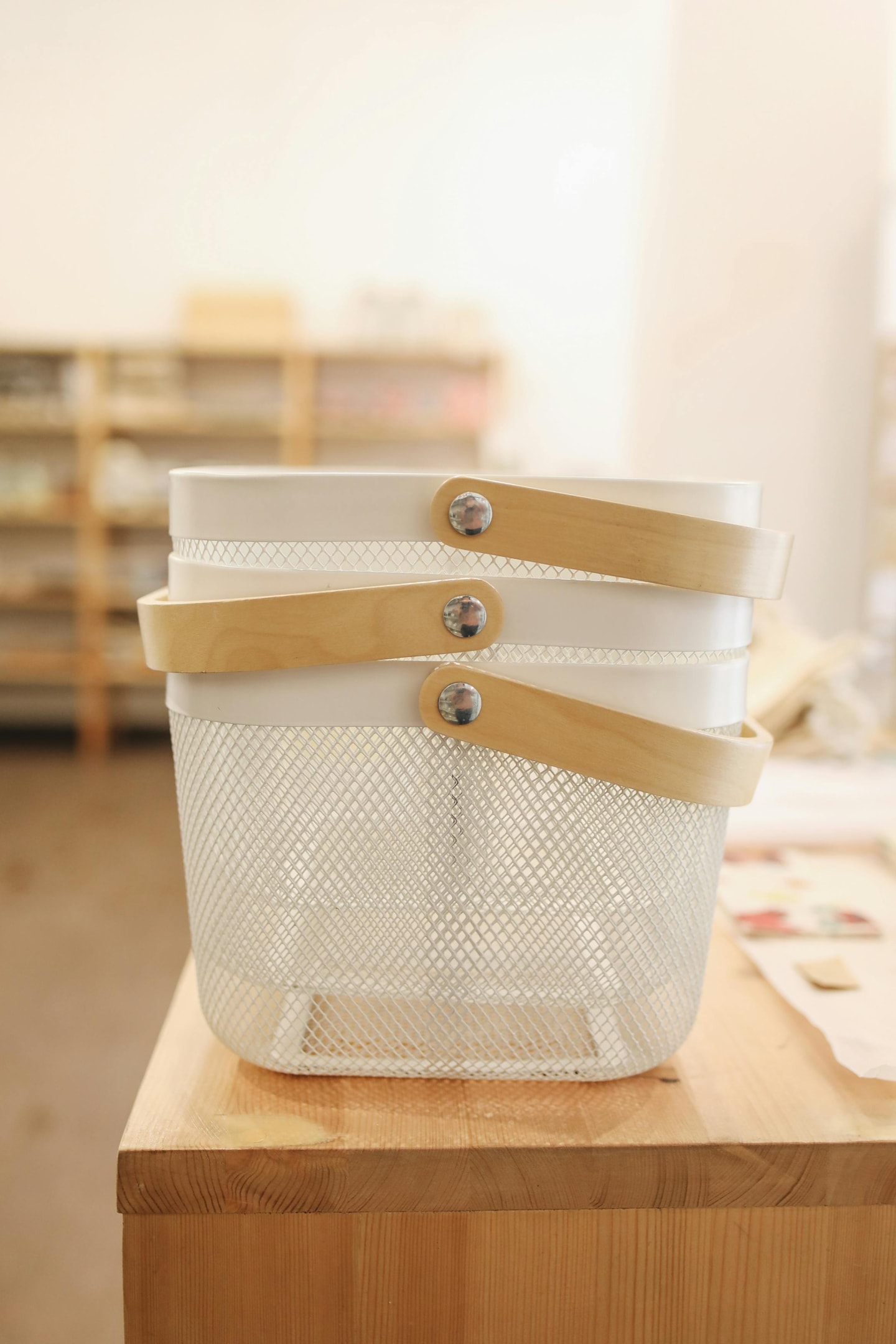
4. Finish one project before beginning another.
This tip is specifically for my mother (Hey, Mom!). She has been in some state of decluttering for as long as I can remember.
She had a hundred or so kids that she kept at home, she sewed and quilted, she eBayed, she had a few doomsday prepper phases, and she’s an absolute pro at shopping online deals.
I remember watching her get bit by the Declutter Bug routinely, and she’d set off. She’d pull out everything from a cabinet, sort those items, then turn to the next, pull everything from there, sort that into MORE piles, etc., until the entire kitchen was spat out on the floor.
Then she was tired. Reasonably so! That was a lot of work, and now her reward is the house looking like a category 5 just ripped through it.
She’d get decluttering paralysis.
What if, instead…
She’d stopped at that first cabinet.
Threw away the garbage pile, brought the donation box to her car, put away the things that belonged in other rooms, and reorganized what was left back into the cabinet.
Then she could check in with herself–does she feel like starting another? Maybe she’ll come back tomorrow.
The house stays neat, and that cabinet is complete.
So don’t get in over your head! Stop before you’re burned out–remember that you need energy for clean-up, and to live the rest of your day.
5. What about the sentimental items?
Items of particular sentimental value can be difficult to manage. That emotional attachment can stop a declutter train on its tracks.
It’s going to be hard to declutter, but some things are objectively harder to part with than others.
No one wants to get rid of family heirlooms. If you start going through those boxes of photos and old trinkets first thing, you’ll get stuck circling the cul-de-sac of memory lane.
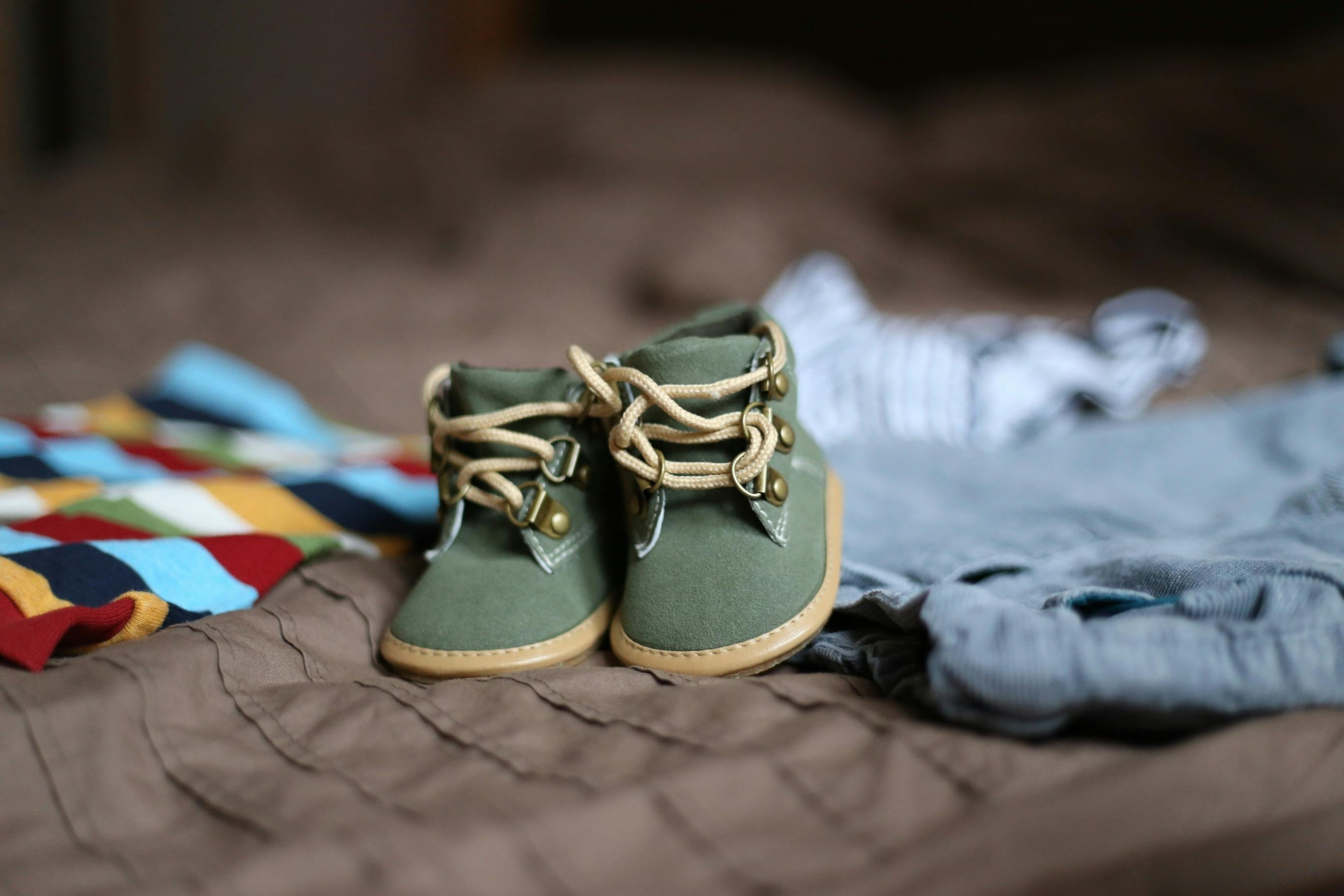
Strategies for dealing with sentimental items.
1. Take a photo or scan items. Once they’re saved digitally, it becomes much easier to part with them.
2. If you have a few things (or many things) that you’ve saved to commemorate some person or era, consider choosing a favorite or two and letting go of the others.
3. Ask yourself if you genuinely love the item, or if you’re keeping it out of guilt. Many “sentimental people” feel guilty or afraid to let go of things from their past. It can be freeing to do so.
4. If you’re still really struggling, you can store them away in a Maybe box. Items that you’re considering letting go of, but you’re not feeling confident enough to do it yet. Give yourself time to process the loss before you actually let it go.
5. Start easy. Don’t start with the sentimental stuff! Go through the easy clutter first so you can build up your tolerance and skills of getting rid of things.
6. Cut yourself some slack.
Failing to declutter your home comes with a strange sense of shame on its own. You might be embarrassed for people to see your house. Or you might feel like a failure for not having done it already.
Clutter is morally neutral.
And, sure, we can get into some nuance, like how it’s important to raise children in a home that’s safe and clean, but in general? Decluttering is not tied to your moral worth in any way, shape, or form.
So relax. Stop beating yourself up about it.
It might be time to buckle down and get practical about the situation, but tearing yourself up along the way isn’t going to help. It’s going to slow you down, if not stop you completely.
Have some self-compassion and patience as you work through this process. It’s a difficult road for many. You’re not alone.

You just need about 20% of whatever this lady ^ is on, and you’ll be fine.
What happens if you fail?
Failing to declutter your home can have consequences of varying severity.
1. Mental and physical health problems.
There are huge health benefits to living in a clutter free home, and there are huge health threats from living in a cluttered, claustrophobic, overwhelming space.
Having too much stuff in your living space contributes to depression and anxiety. “Failing” to declutter brings feelings of worthlessness, perpetuating that cycle.
If you’re struggling with your mental health, please reach out to a professional or a family member for support, and remember that your decluttering progress doesn’t reflect on your morality or your substance as a person.

2. Relationship damage.
Some levels of clutter and hoarding can strain relationships. Kids who grow up in hoarder homes often harbor resentment as adults. It can foster feelings comparable to having an addict parent–why are they choosing this harmful thing over me and my well being?
Less serious clutter can also affect relationships in that you might be embarrassed to have people over, making you feel isolated and alone. Your friends might feel rejected that they’re never allowed to visit you, and your insecurity will likely come off as detachment.

3. Vermin and pests.
In extremely cluttered areas, you’re at risk of attracting and harboring pests. Rats, mice, cockroaches (gag), silverfish. I remember an episode of Hoarders where a woman had multiple dead cats in her house that she didn’t know about.
It’s hard to clean with too much stuff, while a clutter free home can take only minutes per day to keep up with.
So if you don’t want this cute little guy peeing all over your pantry and opening every container to take one (1) bite of what’s inside before moving on to the next, declutter!

4. Shame.
Having so much stuff can bring a level of shame. Shame about people seeing it, shame about how you haven’t been able to deal with it yet, or shame that the cycle keeps perpetuating itself.
You only fail if you stop getting up. You only have to get back up one more time than you fall down.
5. Being uncomfortable in your own home.
If you don’t have a place you can truly relax and recuperate, your body stays in fight or flight mode. This can cause chronically high cortisol, fatigue, mental disorders, changes in physical appearance, and autoimmune issues.
It’s so important to have a space you’re comfortable in to truly decompress, and for many people, that’s impossible in a cluttered space.

These are only some of the consequences of ignoring the clutter. You have to attack it head on, in baby steps, while being kind to yourself to make progress and keep that progress.
Where to start decluttering.
At the beginning, getting started can be the hardest part. Here are some places you might start.
Where do you need it most?
Where would have the most impact? Do you have too much stuff in your bedroom that it’s stopping you from getting good rest?
Would clearing clutter from your office make you much more productive at work?
Do you feel guilty that your kids’ rooms or play area is hard for them to play in because it’s so cluttered?
Would less stuff cluttering up the kitchen counters make you cook more than you eat out?

What’s easiest?
It can be much simpler to sort through that mountain of mail than it is to get rid of sentimental items or family heirlooms. So, maybe going for the less emotionally triggering categories first will help you build momentum up to those harder decisions.
Is it dire?
For a more intense case of a cluttered home, safety may be an issue. If so, hiring a professional cleaner or professional organizer might be necessary, especially if you know that you have a hoarding-related disorder.
If it’s not THAT serious, but still pretty bad, what areas are the worst? Maybe that’s where you start.

If your entire house is an absolute disaster, no wonder you can’t make progress! That’s very overwhelming and hard for anyone to deal with.
I would recommend you start clearing out one area or room–even if it means boxing everything up and shoving it in the next room.
You need a calm and peaceful place to rest. And so do your family, pets, and housemates, if you have them. Getting an area to feel safe and rest in as you tackle this huge job is important and will help keep you sane.
Just start.
You also don’t need a reason for where you begin decluttering your home. The only thing standing between you and a clutter free home is the job. So do the job.
Start with what’s in front of you. Start with what appeals. Just start.
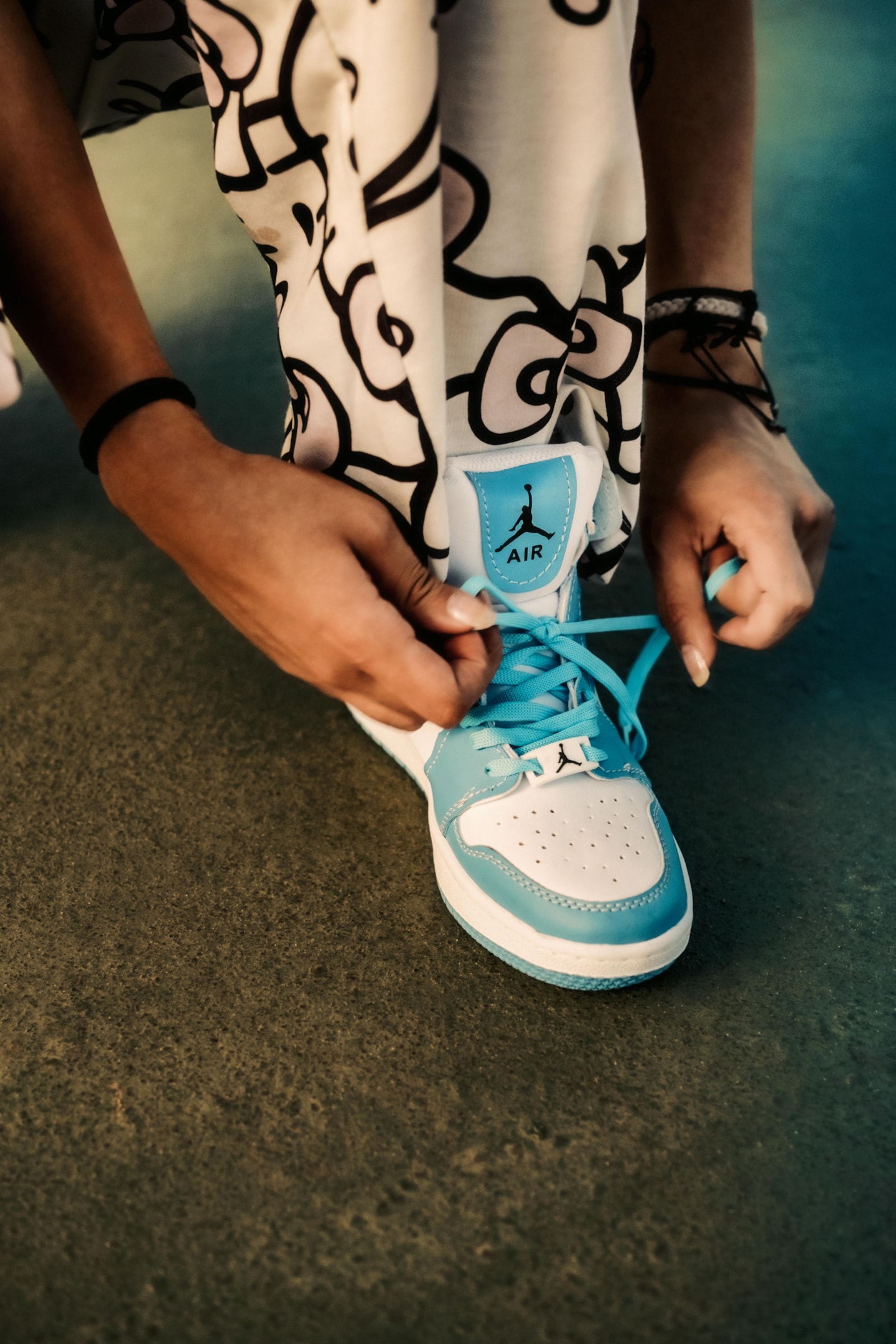
How to move forward.
You can succeed. You just need to stay motivated, stay kind to yourself, and don’t quit. Here are a few extra resources for you to check out.
Free 30 day decluttering challenge to make getting started easy:
Related articles
- Why is it so hard to get rid of stuff?
- 6 ways to handle anxiety when decluttering is hard.
- Clutter & mental health.